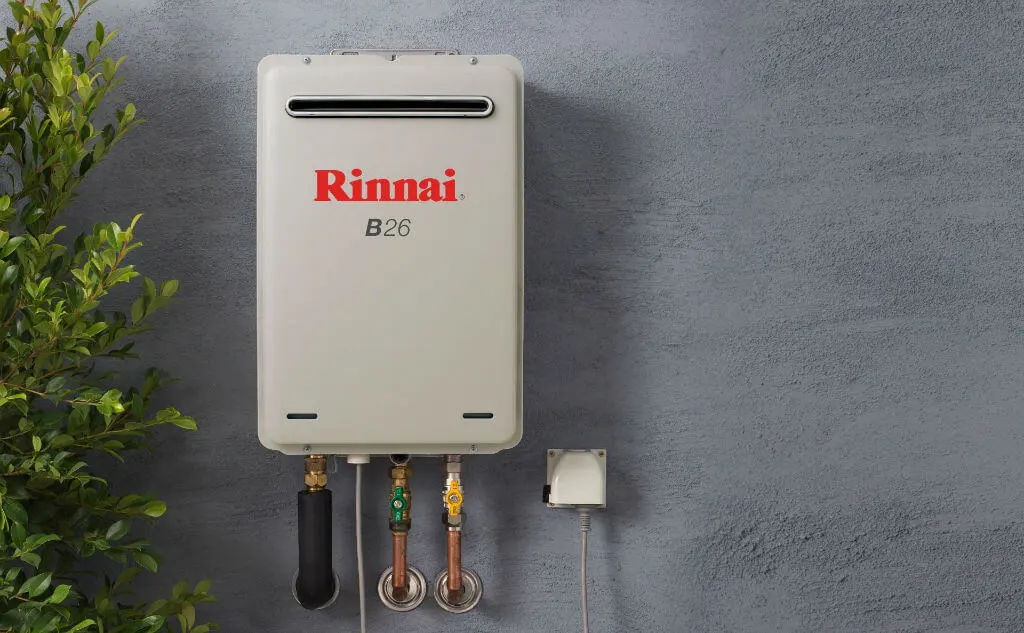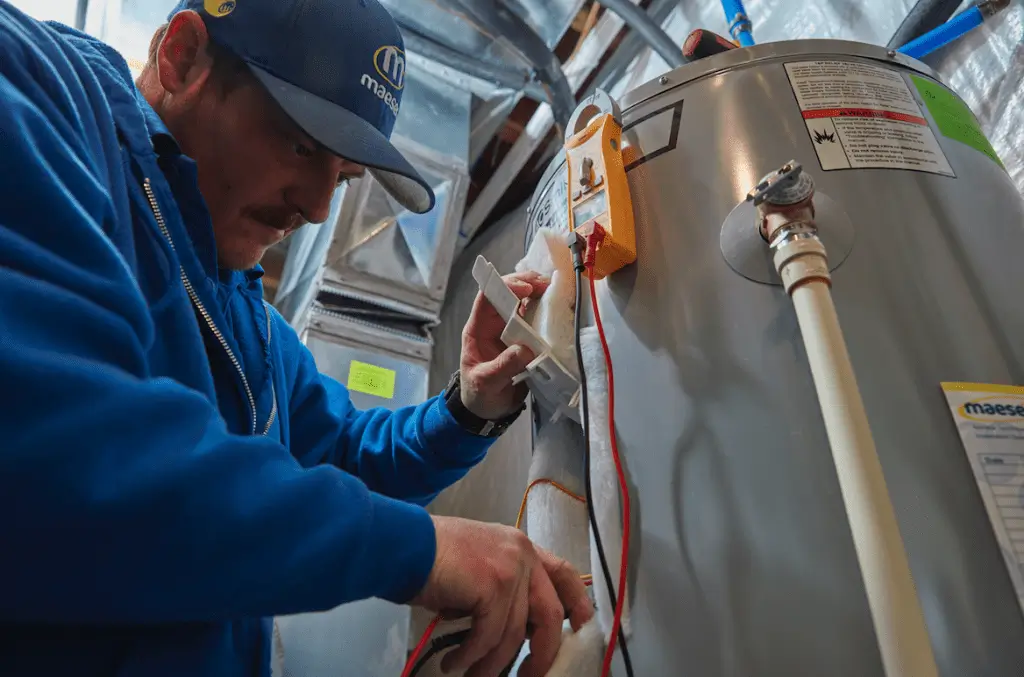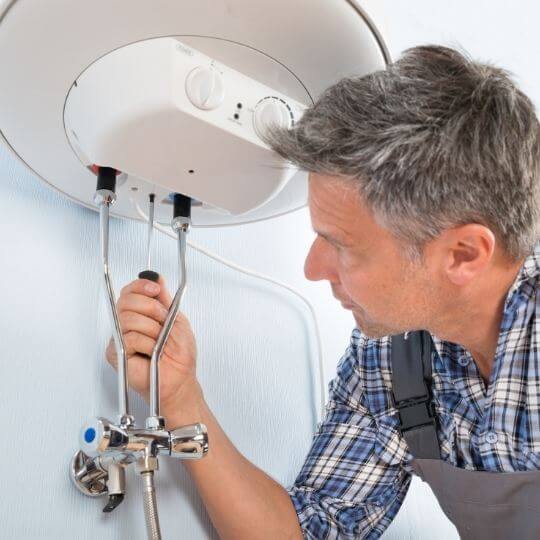Taking care of household bills is always important. Water heater can be one of the greatest consumer of electicity. But do you know how to make water heater more efficient?
Did you know that water heating happens to be the second-largest energy expense in the average US home? Hot water heating actually accounts for a considerable 18% of the overall energy consumption among American households.
If you’ve been wondering why your utilities are high, that water heater just may be the culprit. If you wish to cut down on your bills this winter season, consider optimizing your water heater’s efficiency.
A slight improvement in how you use your water heater can save you money, extend its lifespan, and reduce the environmental impact of water heating. In this blog post, we’ll give you tips for optimizing your water heater efficiency, from sizing your water heater to adjusting your thermostat.
Before we explore the tips, let’s first understand the different types of water heaters.
The Types of Water Heaters

Many water heaters are available, each having its advantages and disadvantages. Your choice depends on household size, fuel type, energy efficiency, and budget. Here are the most common water heaters:
- Tank Water Heater
As the name suggests, this type of heater has a tank to hold hot water for later use. You’ll find a tank water heater in most homes due to its low upfront cost, and more hot water is readily available. However, tank water heaters are considered the worst in terms of energy efficiency since they keep the water hot even when not in use.
- Tankless Water Heater
Also known as instantaneous water heaters or on-demand water heaters, tankless water heaters provide hot water when you need it. It is gaining popularity due to its energy efficiency capability since there is no standby heat loss, resulting in lower energy consumption.
The main drawbacks of tankless waters heaters like the famous Marey are their high upfront costs, malfunctions during showers, cold water sandwich, and limited hot water flow rates among others.
- Point-of-Use Water Heater
A point-of-use water heater (POU) provides hot water to a specific location, such as a sink or shower. You can use this heater to boost the water temperature of a fixture installed far from the water heater. The POU water heater is energy efficient since it heats water when needed and reduces wait times.
Related: How To Pick Water Heater Size
How to Optimize Your Water Heater to Save Money

Now that you understand the heater you may have or want to buy, here are some tricks you can try to improve its energy efficiency.
Adjust Your Thermostat
Adjusting the thermostat is an excellent way to improve your water heater’s efficiency. The manufacturer sets most household water heater’s temperatures to 140ºF. However, lowering this temperature to 120ºF is generally safe and can lead to an annual 4-22% energy savings.
It’s good to note that temperatures above 140ºF can pose a scalding risk, especially to young children.
Related: Are Water Heating Elemenets Universal
Insulate Your Tank
Consider insulating your tank to reduce standby heat loss and save energy if you have a tank water heater. The best is to insulate the tank using an insulation jacket or blanket specifically designed for water heaters. Insulating your water heater tank can save 7–16% of your water heating costs.
Besides insulating the water heater, consider adding insulation to your hot-water pipes, especially if they’re far from the water heater.
Shift to a Tankless Water Heater
If you have an old tank water heater, it might be time to replace it with a tankless one. Tankless water heaters are famous for their ability to heat water when needed, preventing standby losses. As a result, they can be 24–34% energy efficient for households that require 41 gallons or fewer of hot water per day. For homes that require about 86 gallons of hot water daily, you can expect to save energy by 8–10%.
Use a Timer
Tank water heaters work throughout the day to ensure you always have hot water. However, most households don’t use hot water during the day or at night. For example, for those who go to work in the morning, there’s no need to keep hot water until the evening when you return. Also, since you won’t need hot water at night, you can turn the heater off.
And here is where a water heater timer comes in! You can install a timer on your water heater to help you turn the heater on and off. This ensures you only have hot water when needed, saving you energy.
Choose a Size That Matches Your Home
Choosing the right size for a water heater is crucial for saving energy and money. So ensure the size is correct to avoid having little hot water for household use or heat too much than necessary, wasting energy.
Do your calculations, see how much hot water your family needs, and appropriately size your water heater. You can ask a professional to help size your water heater to ensure you have the correct size.
Ensure Regular Maintenance and Inspections
Like any other appliance, regular maintenance and inspection can go a long way toward optimizing your water heater’s efficiency. Some things you can do during your maintenance routine are:
- Flush the tank: Your water heater tank can become clogged by sediments or mineral buildup, wasting energy and impeding performance. Ensure you flush your tank for at least six months or less, depending on your water type.
- Fix leaks: Leaks can significantly affect your water heater efficiency, making it an essential maintenance task. Inspect your water heater for leaks and fix them promptly for maximum efficiency.
- Inspect the anode rod: The anode rod acts like a magnet by attracting corrosive elements, protecting the steel walls from corrosion. Because of mineral buildup, your water heater’s efficiency is reduced. Inspecting your heater regularly and replacing it after 1-3 years is advisable.
Practice Water Conservation
This is not a way to optimize a water heater per se; however, it’s a great trick that most home users use to save money on heating water. Simple yet essential changes regarding hot water usage in your home can save you money. Some things you can try include:
- Taking shorter showers
- Purchase Energy Star-certified appliances (dishwasher and washing machine)
- Use shower heads with a low flow rate
- Use cold water to do your laundry
Related: Stiebel Eltron vs Bosch
Improve Your Water Heater Efficiency to Save Money Today
Water heating bills account for a larger share of your overall energy consumption, and this will not change much as we go into 2024. However, by following the above tips, you can significantly reduce your heating costs without compromising your comfortable use of your hot water system. Start with a tankless water heater and see how it goes.

Michael Davis is a heating & plumbing expert who currently works as independent contractor in SC. He also writes for Plumbertip.
For almost 10 years he worked on various plumbing tasks across South Carolina.



